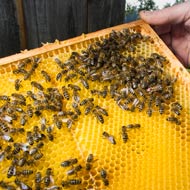
Pesticide understood to cause harmful effects in bees
Most honey contains traces of pesticide at amounts that can harm bees, new research suggests.
Scientists analysed some 200 kinds of honey from across the world and found that 75 per cent contained at least one neonicotinoid pesticide.
Two-fifths of the samples contained two or more varieties of the pesticide and 10 per cent held residues from four or five. The frequency of contamination was highest in North America, Asia and Europe and lowest in South America.
Researchers are now calling for a total ban of neonicotinoids, which are commonly applied to crops in Europe.
Experts have called the discovery “sobering”, “alarming” and of “serious environmental concern”. But they stressed the levels detected are below the maximum residue level authorised for human consumption.
But one British scientist warned that it is impossible to predict how harmful consuming small amounts of pesticide over a long period of time can be. Dave Goulson, professor of biology at the University of Sussex, is quoted by The Independent saying:
"Beyond doubt ... anyone regularly eating honey is likely to be getting a small dose of mixed neurotoxins. In terms of acute toxicity, this certainly won't kill them and is unlikely to do measurable harm.
"What we don't know is whether there are long-term, chronic effects from life-time exposure to a cocktail of these and other pesticides in our honey and most other foods."
Neonicotinoids have been in use for more than 20 years and are associated with serious harm in bees. Recent studies have found a number of harmful effects including reduced lifespan, impaired learning abilities and large scale population declines.
Use of neonicotinoids on some crops was banned in the EU in 2013, but policymakers at the European Commission are now discussing whether to make the ban permanent and more far-reaching.
A worldwide survey of neonicotinoids in honey is published in the journal Science.



 The Veterinary Medicines Directorate (VMD) is inviting applications from veterinary students to attend a one-week extramural studies (EMS) placement in July 2026.
The Veterinary Medicines Directorate (VMD) is inviting applications from veterinary students to attend a one-week extramural studies (EMS) placement in July 2026.